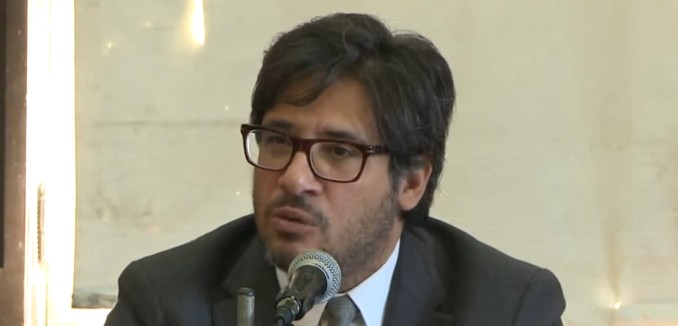Argentina’s new justice minister, Germán Garavano, announced that he will not renew a controversial agreement with Iran to jointly investigate the 1994 AMIA community center bombing, The New York Times reported on Saturday. The deal was originally signed by the government of former Argentine President Cristina Fernández de Kirchner.
Although a court last year had ruled the pact with Iran to be unconstitutional, the Kirchner government had appealed the decision, according to the Times “because it was considered an overreach by the executive branch.”
The pact, signed in January 2013 by Argentina’s former foreign minister, Héctor Timerman, and his Iranian counterpart, Ali Akbar Salehi, proposed the creation of a joint commission to help solve the 1994 bombing, which killed 85 people.
Argentine prosecutors have accused Iran of being behind the attack, a charge that Iran has denied. …Jewish leaders, some victims’ families and the political opposition to Mrs. Kirchner criticized a provision of the pact that called for Argentine investigators to interrogate the Iranians in Tehran, saying it could pave the way for impunity for the suspects. Mrs. Kirchner’s administration said it was the only way of moving forward with the unresolved case.
Six top Iranian officials, including Ali Akbar Velayati, who was Iran’s foreign minister at the time of the attack and is currently an advisor to Iranian Supreme Leader Ayatollah Ali Khamenei, have had Interpol red notices issued against them over their suspected involvement in orchestrating the terror attack.
Argentine prosecutor Alberto Nisman, who accused Kirchner and her foreign minister, Héctor Timerman, of covering up Iran’s role in the bombing, was found dead under mysterious circumstances the night before he was scheduled to present his case to an Argentine congressional committee in January.
Eamonn MacDonagh, contributing editor to The Tower, wrote in an analysis of the election of President Mauricio Macri last month that the incoming administration would move to distance itself from Iran.
At his first press conference on Monday morning, the president-elect, who takes office on December 10, repeated two of his campaign commitments. The first of these was that he would send a bill to the nation’s Congress to annul the 2013 pact with Iran, which ostensibly aimed to seek justice for the 85 victims of the 1994 terrorist attack on the AMIA Jewish community center in Buenos Aires, but which the late Federal Prosecutor Alberto Nisman believed was no more than a façade to cover up a secret agreement that guaranteed impunity to the perpetrators.
International arrest warrants are still outstanding against a number of senior Iranians suspected of having participated in the atrocity. In January of this year, Nisman was found shot dead in his apartment four days after making a formal complaint against President Cristina Fernández de Kirchner and a number of her most senior officials, in which he accused them of using the pact to cover up the massacre.
Even if Macri’s proposed bill gets through Congress, the step will be largely symbolic in nature, given that the Iranians have long since lost interest in implementing the pact, which in any case is bogged down in legal disputes in Argentina’s courts. Still, in the current global political climate, even symbolic steps to place limits on Iranian ambitions have to be valued positively.
While praising Macri for his willingness to scrap the deal with Iran, MacDonagh
[Photo: Coalición para la Independencia Judicial / YouTube ]




